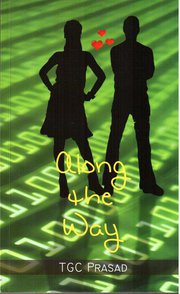Author: R. K. Narayan
Price: 100/-
Pages: 247
My Rating: 5/5
Story:
This is narrated alternating between past and present of the protagonist, Raju.
Present:
After the release of the Raju from the jail after two years, because of few incidents the villagers consider him as a Swami and will start worshipping him. Though Raju couldn't bear the expectations of the villagers, he decides to take the Swami role to lead his life in comfort.
Past:
Raju was born and brought up in Malgudi, is a popular tourist guide. One day a person visits the village along with his wife, Rosie, who is a Bharatha Natyam enthusiast but kept her interest aside because of her husband. Swami meets them at the railway station, and gets attracted towards Rosie from the moment he saw her. He arranges everything for their stay and guides the couple to various places. Meanwhile, the bond between Raju and Rosie strengthens.
Did Raju get his dream girl, who was already married ?
Did Rosie pursue her interest in dance ?
How did the relation of Raju with Rosie turn into ?
What changes did their relation brought in both of their lives ?
How did Rosie's husband react ?
Did Raju's interest in Rosie lasted till the end ?
Why did Raju land in jail ?
How did Raju's life as a Swami proceeded ?
My Opinion:
This book will make us forget everything and take us through a mesmerising journey along with the story, filled with emotions, nail biting situations, leaving us in a trance even after reading the book.
The way R. K. Narayan narrated the story, the way he formed the sentences, the way he infused the humour, the way he portrayed the emotions of the protagonist, the way he described situations and surroundings, the way he build the suspense till the end..everything is magical.
Conclusion:
Do not miss this book.











